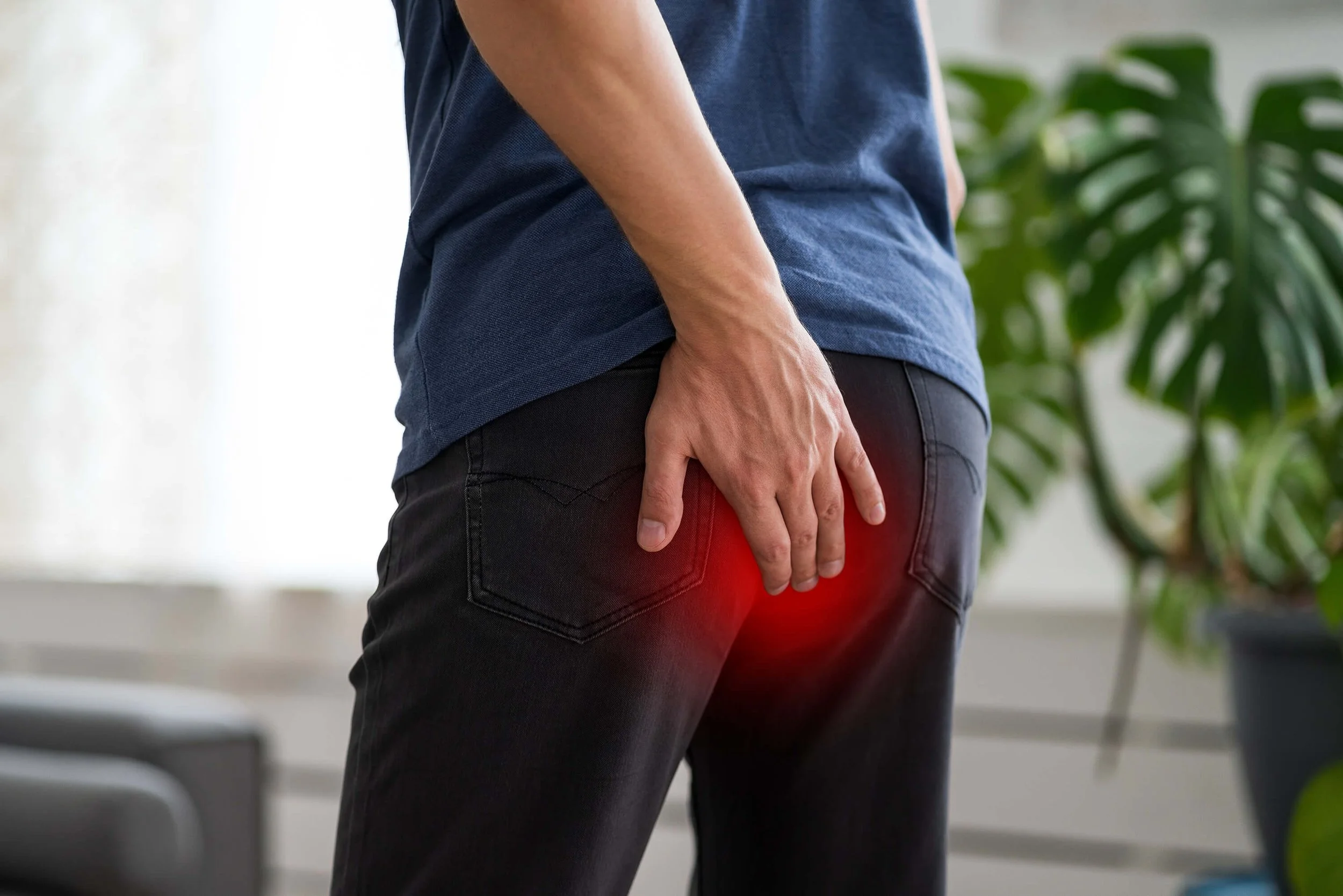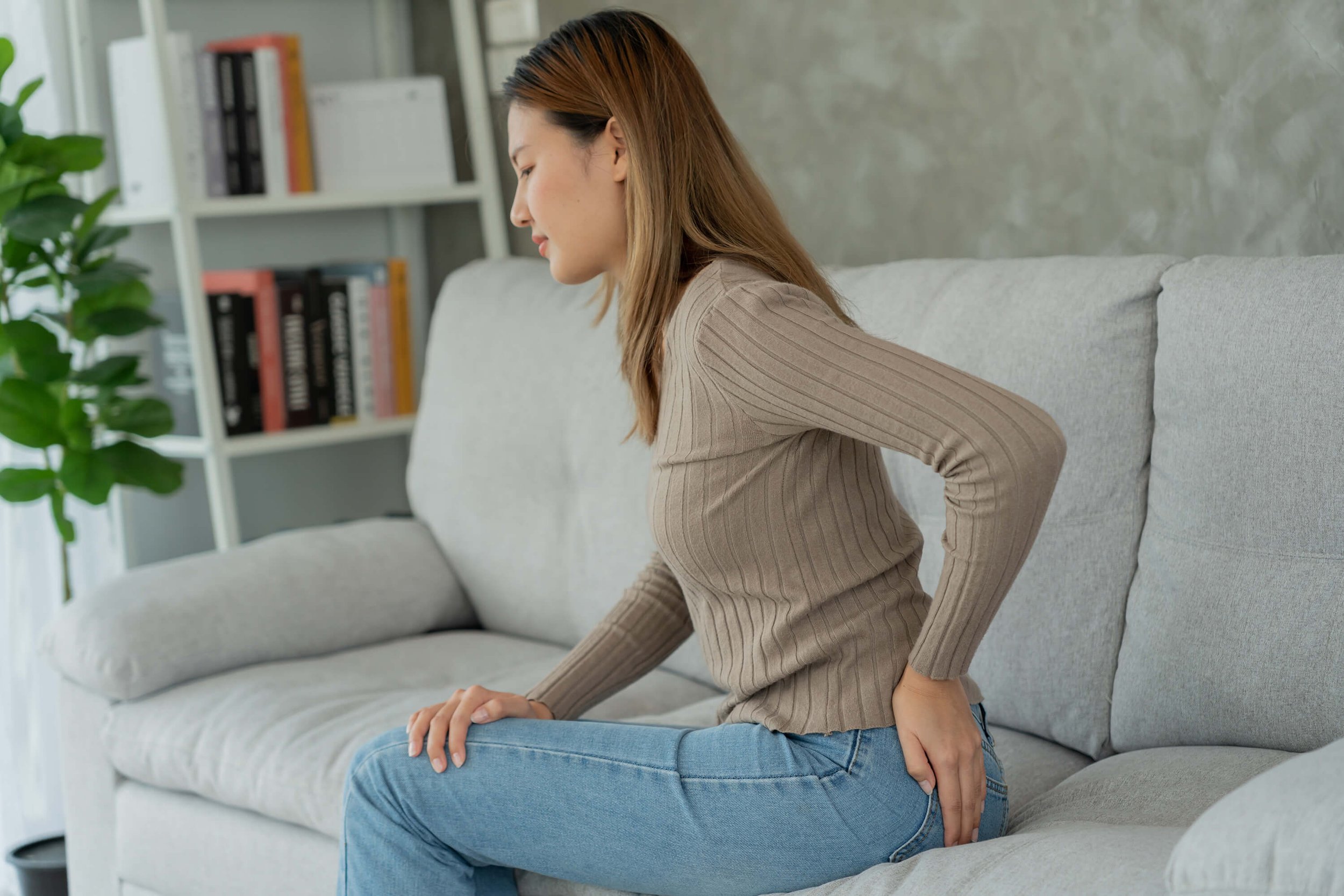How long does it take for hemorrhoids to go away?
Hemorrhoids, often caused by straining during bowel movements, typically improve with at-home treatments and lifestyle modifications.
Mild symptoms may clear up in just a few days, but more severe or persistent cases can take a few weeks or months to resolve.
Make sure you’re consulting a healthcare professional, like the ones at MIMIT Health, to better understand your specific condition and appropriate treatment because hemorrhoids can return if contributing factors (constipation or prolonged sitting) are not addressed
How to know if you have hemorrhoids
Identifying hemorrhoids often involves recognizing a set of common symptoms.
This condition typically presents with discomfort or itchiness around the anus, as well as bleeding during bowel movements.
Some people may notice a painful swelling or a hard lump around the anus.
Physical examination or medical procedures like sigmoidoscopy and colonoscopy can confirm the presence of internal hemorrhoids, which might not be visible externally.
How long do internal hemorrhoids last?
The duration of internal hemorrhoids can vary greatly depending on the severity of the condition and the treatment implemented.
While minor hemorrhoids may resolve within a few days with basic home remedies like warm baths, dietary changes, and over-the-counter creams, more severe cases can last for several weeks or even months.
It's vital to remember that even after symptoms subside, long-term lifestyle changes are often needed to prevent recurrence.
How long do external hemorrhoids last?
External hemorrhoids often last for a week or so in mild cases, reducing in size as symptoms gradually subside with appropriate at-home treatments such as sitz baths, over-the-counter creams, and dietary changes.
In more severe instances, where a blood clot forms, the healing process may take between three to four weeks. However, like internal hemorrhoids, external hemorrhoids can come back if the root causes like constipation, straining during bowel movements, or prolonged sitting are not addressed.
Tips for Managing Pain and Discomfort
Hemorrhoid discomfort can be effectively managed with a few simple tips:
Use pain-relieving creams.
Over-the-counter hemorrhoid creams or suppositories containing hydrocortisone can help reduce pain and swelling.
Take warm baths.
Regularly soaking in warm water for 15 to 20 minutes can soothe the anal area and help decrease inflammation. This is commonly known as a sitz bath.
Ensure you’re staying clean.
Careful cleaning of the anal area can help prevent irritation and reduce discomfort. Use soft, unscented toilet paper or a gentle wipe to clean after bowel movements.
Apply cold compresses to the affected area.
Applying ice packs or cold compresses on the affected area can reduce swelling and provide instant relief. Always wrap the ice pack in a cloth to prevent skin damage.
Eat a high-fiber diet with plenty of water.
Eating a high-fiber diet and drinking plenty of water can soften stools, making them easier to pass and reducing straining during bowel movements. If you have dietary restrictions that make diet troublesome, we are partnered with RCG Medical to provide vitamins and supplements from Thorne.
Take Over-the-Counter Pain Relievers.
Non-prescription pain relievers like acetaminophen, aspirin, or ibuprofen can alleviate the pain associated with hemorrhoids. It’s best to consult with a physician if you’re unsure of what to take, however.
When Should You See a Doctor for Your Hemorrhoid Symptoms
Even though hemorrhoids are typically manageable with at-home treatments, certain signs and symptoms necessitate immediate medical attention. Consult with a healthcare professional under the following circumstances:
Persisting Symptoms: If your symptoms persist for a week or more despite home treatments, it is advisable to seek medical help.
Severe Pain: Severe or escalating pain could indicate a more serious underlying condition like a thrombosed hemorrhoid and should be addressed promptly.
Rectal Bleeding: While light bleeding can be a symptom of hemorrhoids, excessive or ongoing rectal bleeding can be a sign of more serious conditions, such as colorectal cancer. Consult a doctor if you experience heavy bleeding or if the bleeding does not stop.
Change in Bowel Movements: Changes in bowel movements, such as persistent diarrhea or constipation, or a change in the color or consistency of the stool could be a sign of a more serious digestive disease. Seek medical help if you notice such changes.
In all these instances, early consultation and appropriate treatment can prevent complications and ensure a speedy recovery. It's always crucial to remember that self-diagnosis and self-treatment can sometimes lead to more harm than good, especially when dealing with health conditions like hemorrhoids.
Medical Treatments Available for Hemorrhoid Relief
If at-home treatments do not alleviate your hemorrhoid symptoms, MIMIT Health offers the following treatment:
Hemorrhoid embolization
Hemorrhoid embolization is a minimally invasive procedure involves blocking the blood flow to the affected area, causing the hemorrhoid to shrink and eventually disappear. Unlike traditional surgical methods, hemorrhoid embolization is performed on an outpatient basis and has a quicker recovery time.
During the procedure, a small catheter is inserted into the affected blood vessels, and small particles are released to block the blood flow, causing the hemorrhoids to shrink and eventually be reabsorbed by the body.





